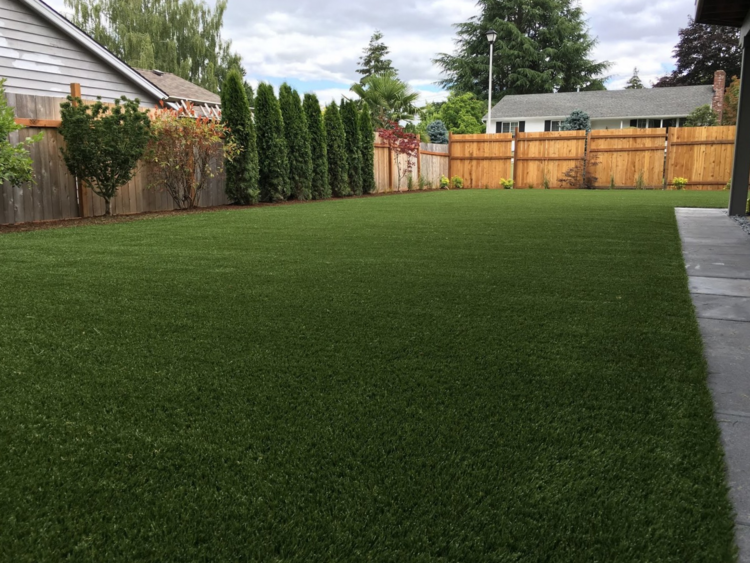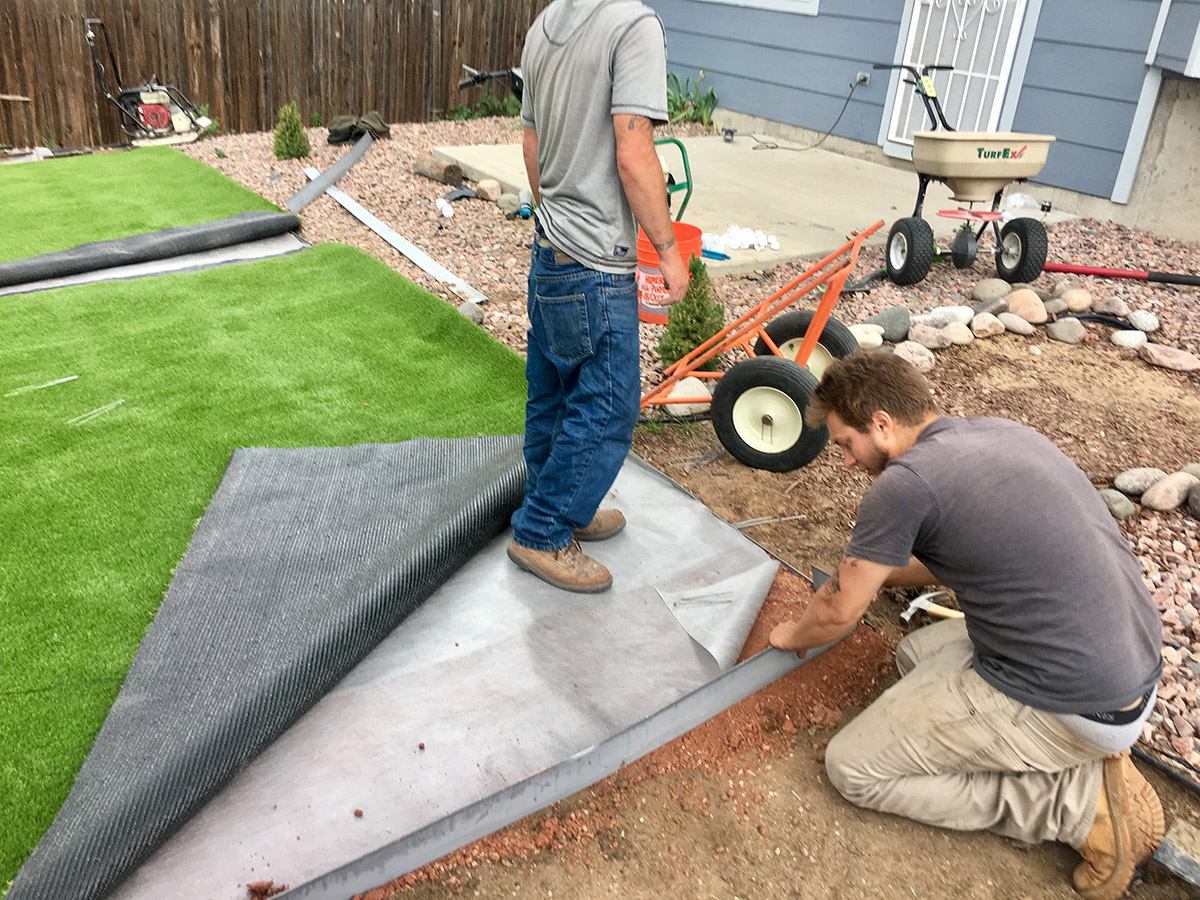Premier Phoenix Turf Companies Providing High-End Synthetic Lawn Products
Premier Phoenix Turf Companies Providing High-End Synthetic Lawn Products
Blog Article
Delve Into the Environmental Advantages of Opting for Synthetic Grass Solutions
The adoption of synthetic grass options offers an engaging possibility to attend to pushing ecological challenges. By substantially reducing water use and decreasing the application of harmful chemicals, these choices not just promote lasting landscape design but also protect local ecosystems. Moreover, the reduced carbon footprint related to decreased upkeep activities adds to a more sustainable strategy to land monitoring. Nonetheless, the effects of these benefits expand beyond mere conservation efforts, increasing concerns regarding their long-lasting influence on habitat preservation and general eco-friendly balance. Exploring these dimensions discloses a complex interplay worth taking into consideration.
Water Preservation Perks
Among one of the most substantial benefits of synthetic grass is its capacity to save water. Standard yard lawns call for substantial watering, especially in locations vulnerable to drought or water restrictions. In comparison, synthetic grass does not require watering, considerably minimizing the overall need for water sources. This function is particularly advantageous in deserts where water deficiency is a pressing problem.
By eliminating the need for regular watering, synthetic grass adds to sustainable landscape methods and aids mitigate the environmental effect of extreme water usage. The conservation of water expands to the decrease of overflow, which can lead to dirt disintegration and waterway pollution.
In addition, the setup of artificial grass enables districts and house owners to designate water resources much more successfully, concentrating on essential uses such as alcohol consumption water and farming. The change in the direction of synthetic grass not only advertises responsible water use yet likewise aligns with broader ecological goals focused on preserving natural sources.
As neighborhoods significantly focus on sustainability, the water conservation advantages of synthetic grass offer an engaging situation for its fostering in industrial and property landscape design tasks.
Decreased Chemical Use
The shift to artificial grass significantly reduces the dependence on chemical treatments typically utilized in all-natural grass upkeep. Traditional turf administration usually entails the application of herbicides, chemicals, and plant foods to advertise development and control pests. These chemicals can position threats to human health, regional wild animals, and the environment, adding to soil and water contamination.
In contrast, synthetic grass eliminates the requirement for these unsafe substances. As soon as set up, it requires very little upkeep, largely containing normal cleansing and occasional infill replenishment. This reduction in chemical usage not only benefits the prompt setting but also adds to wider ecological security. By reducing the release of synthetic compounds right into the ecological community, synthetic grass advertises much healthier dirt and water supply.
Moreover, the lack of chemical runoff connected with synthetic grass installations assists secure neighborhood waterways from contamination, sustaining marine life and preserving biodiversity. Turf installation phoenix az. As neighborhoods increasingly focus on lasting practices, deciding for synthetic grass provides a viable remedy that lines up with ecological conservation goals. Via this shift, homeowner can take pleasure in lavish environment-friendly rooms without compromising ecological health and wellness, leading the way for a much more lasting future
Reduced Carbon Impact

Additionally, the setup of synthetic grass can lead to substantial water conservation. All-natural lawns require considerable quantities of water for watering, which not only includes to the carbon impact linked with water extraction and treatment but additionally stress neighborhood water resources. On the other hand, synthetic grass requires marginal maintenance, needing no watering, thus dramatically minimizing water usage and its associated power prices.
Additionally, the longevity of fabricated turf adds to its lower carbon effect. With a lifespan of approximately 15 years or more, the need for regular replacements is lessened, resulting in much less waste and reduced energy intake in production and dealing with standard yard alternatives. On the whole, artificial turf offers a sustainable choice for eco aware landscaping.
Environment Conservation
Habitat preservation is a critical factor to consider in the dispute over landscape design selections, particularly when comparing fabricated turf to all-natural turf. Natural yard lawns usually require comprehensive maintenance, including using herbicides, pesticides, and fertilizers, which can negatively impact regional ecological communities. These chemicals can leach into the soil and rivers, damaging indigenous plants and fauna and interrupting regional environments.
Synthetic turf removes the requirement for dangerous chemicals, thus protecting close-by wild animals and preserving the integrity of bordering environments. The installation of fabricated grass can lead to the conversion of previous yard locations right into more biodiverse landscapes, such as pollinator yards or native plant areas, which can sustain go neighborhood wild animals.
Ultimately, the shift to fabricated turf not just conserves water and decreases upkeep efforts but likewise fosters an extra harmonious relationship between human tasks and the all-natural environment, promoting habitat conservation while doing so.
Long-Term Sustainability
Lasting sustainability is an important consider evaluating the benefits of man-made turf over traditional grass lawns. One of the most considerable advantages of man-made lawn is its resilience; it can last approximately 15-20 years with marginal upkeep, whereas all-natural grass requires regular reseeding and substitute. This durability minimizes the requirement for constant resources, such as water, plant foods, and chemicals, which are necessary for maintaining a healthy and balanced turf lawn.
In addition, synthetic grass adds to a reduction in carbon exhausts related to yard care tools. Standard grass frequently need gas-powered lawn mowers, trimmers, and blowers, every one of which contribute to air pollution. Arizona turf. In contrast, man-made grass eliminates the demand for such devices, advertising a cleaner environment
In addition, the manufacturing of synthetic grass significantly makes use of recycled materials, improving its sustainability account. As manufacturers embrace environmentally friendly methods, the ecological impact of fabricated grass remains to decrease.

Verdict
The fostering of synthetic grass solutions presents substantial ecological advantages, including significant water preservation, minimized dependence on harmful great site chemicals, and a lower carbon impact. In addition, synthetic lawn help in protecting natural environments by minimizing land disturbance and promoting long-lasting sustainability with the use of durable materials. Jointly, these aspects underscore the capacity of synthetic grass to contribute favorably to environmental health and wellness and offer a viable alternative to standard landscaping methods in a progressively resource-conscious globe.
In comparison, artificial turf does not require watering, considerably minimizing the overall need for water resources. By minimizing the release of synthetic compounds see this here into the community, man-made lawn promotes healthier soil and water systems.
In addition, the installation of man-made turf can result in significant water conservation. In contrast, synthetic grass requires marginal upkeep, calling for no watering, therefore significantly reducing water use and its associated energy expenses.

Report this page